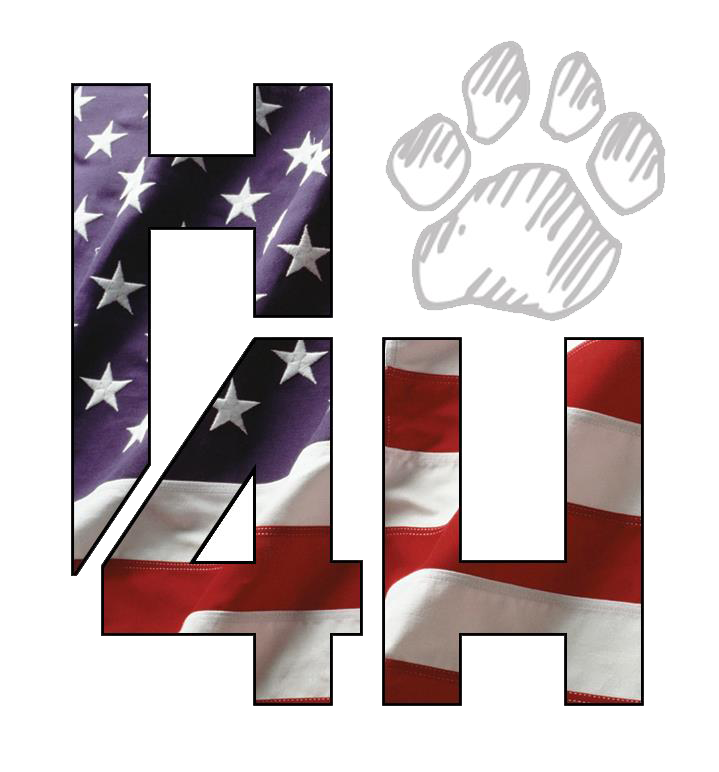Editor’s Note: Healing4Heroes has provided training or service dogs for three members of the same family: Ty Bathurst, a retired Navy SEAL, and Ollie; Ty’s brother-in-law, Kevin Weintraub, a retired Marine, and Mera; and Ty’s brother, Micah Bathurst, a civilian with a neurological disease, and Liberty. This is part one of a series following these extraordinary service dogs and their families.
Ty & Ollie
When Ty Bathurst’s family moved back to the states from Germany in 2017, he knew it was time for his family to get a new dog. Little did he know that Ollie was about to become so much more than just the family dog thanks to Healing4Heroes, an organization dedicated to connecting wounded military veterans with service dogs.
“He was just going to be the family dog,” Ty says. “He was for my middle boy, who promised to walk him and take care of him. But really early on, I became his human, which changed the dynamic of our relationship.”
The Bathurst family adopted Ollie, an English Labrador, from Danikk Labradors out of Minnesota. Ollie was 2 months old at the time, and Ty was a few years away from retiring as a Navy SEAL.
After seven deployments to Iraq, Afghanistan, South America, the Pacific region, and Middle East, Ty has been exposed to multiple explosive events and suffers from headaches and anxiety related to traumatic brain injury (TBI) and post-traumatic stress disorder (PTSD), a condition all too common amongst Special Operations forces and the military.
He started looking for a place to train Ollie as a service dog and came across H4H, founded by retired Army veteran Piper Hill. Hill herself experienced injuries during her time in the Army, and after training her dog Valentine, she found how helpful service dogs can be to wounded veterans.
“I talked to Piper about taking Ollie and getting him professionally trained and accredited,” Ty says. “They usually get dogs for veterans and train them, but in my case, I was taking my dog and training him.”
Piper sent Ty a training regime and drills to work on with Ollie, who immediately took to it. By the time Ty took Ollie to get certified a few months later, “he just breezed right through it.”
“His behavior was already so good that adapting to everything was not a big deal,” Ty says, describing Ollie’s disposition as “mellow” and “chill.” “I started taking him everywhere.”
Ollie has multiple tasks he performs for Ty that include diffusing anxiety in crowded places, support for mobility issues, maintaining personal space, posting up for potential threats as an indicator, and helping him deal with the occasional nightmare, a common PTSD symptom for veterans.
Ollie wears a jacket while he’s on duty to remind people that he’s working and to discourage friendly ear scratches and pets.
Ollie accompanies Ty everywhere; ever-vigilant, they are constant companions and their adventures include: a trip to South Dakota where Ollie met a buffalo, hog hunting, a trip to Costa Rica, multiple camping trips, a Miami Hurricanes football game, airplane rides and hotel stays, and the most mundane — but you could argue the most important — of all, the office.
“There’s a weird stigma around it [having a service dog] sometimes,” Ty says. “People will ask me ‘What’s wrong with you? You look normal.’ It’s just not associated with people who look ‘normal’ and is an adjustment for people to understand.”
After 21 years in the Navy, Ty retired February 1, 2020. He has since worked at a non-profit, and is adjusting to civilian life amidst the coronavirus pandemic. He’s been married for 22 years and has three children ages 16, 13, and 8. Wherever the family goes, Ollie is always along for the ride.
“I definitely need him more than he needs me,” Ty says. “He is just a part of who I am now, like my wallet or my phone or clothes. Everywhere I’m at, he goes, except the gym, and it’s weird to be there without him. He’s a great listener, he has a great personality. He’s just pretty awesome.”
Ollie is so good at his job that he often performs his tasks before Ty is even aware he needs him. When Ty is anxious, Ollie will jump on him to remind him to relax or start walking his perimeter when he senses Ty is uncomfortable.
“Sometimes I don’t catch it when I’m in the moment, and Ollie knows and understands how I want to work with him,” Ty says.
Since Ollie stays up many nights to help Ty with nightmares, he can be a bit sleepy during the day. But if Ty tries to give him a break by not taking him somewhere, Ollie will be grumpy and pout.
“He definitely has opinions,” he laughs.
Because of his experience with H4H, members of Ty’s extended family have come to know the organization.
Ty’s sister, Brie Weintraub, began working for H4H and his brother-in-law, Kevin Weintraub, and brother, Micah Bathurst, have both adopted dogs through H4H. Kevin is a retired Marine, and his dog Mera has been specially trained to help him prevent diabetic emergencies. Micah, a civilian, has a rare neurological disease that confines him to a wheelchair and his service dog helps him with everyday tasks and has given him a “new level of freedom and confidence.”
“I don’t know any other organization that would do this for us,” Ty says. “Piper is really going above and beyond what we expected. She’s got a great heart and does a really fantastic job of helping people out. I am humbled and grateful by her overwhelming help for my family.”




